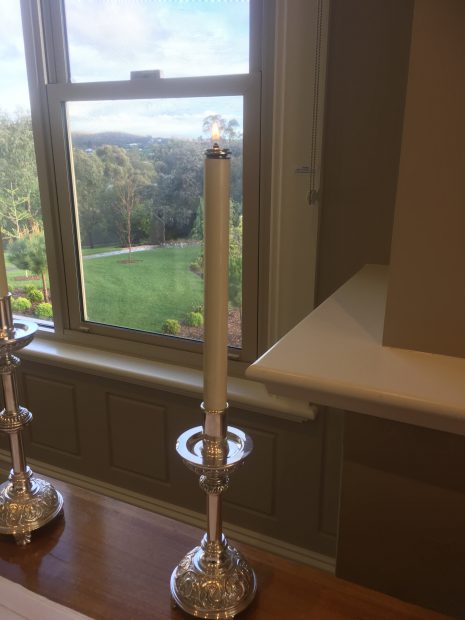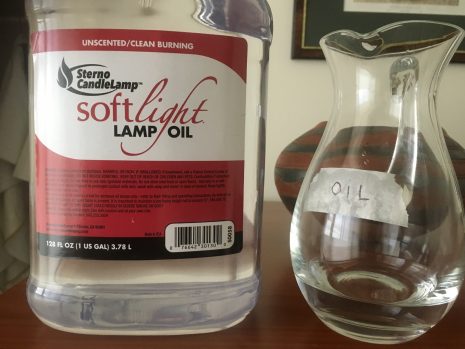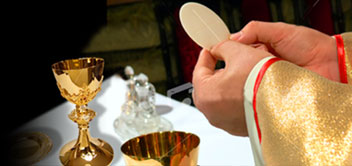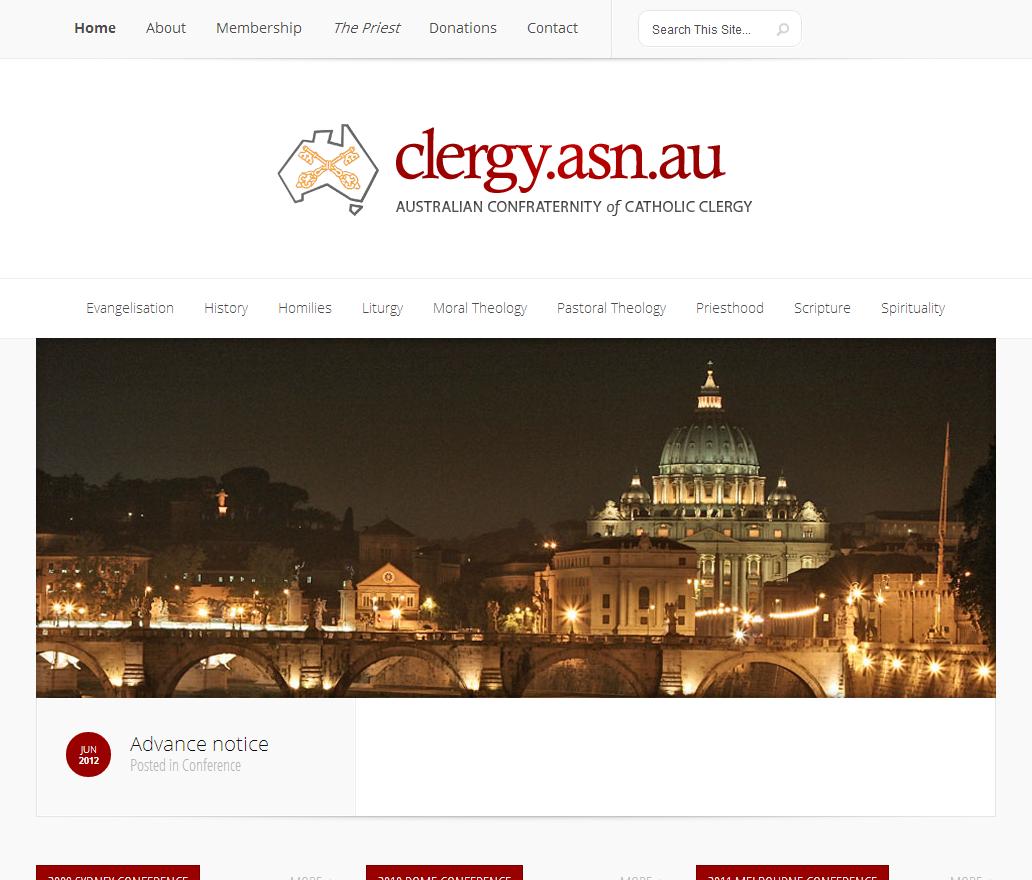So I drank some toxic lamp oil on Saturday. The oil was mistaken for water, and I drank it while purifying the chalice at Mass. My weekend wasn’t pleasant, but I’m totally recovered now.
The chapel in the house I’m staying at eschews wax candles. Instead, the altar is adorned with oil lamps made to look like candles. That probably sounds weird, but it looks fine:
I like these oil lamps pretending to be candles. They’re a neat and elegant solution to wax spills and wastage.
Now here’s a picture of the oil used to fuel the lamps:
This oil is clear, it is odourless, and its viscosity is similar to water. In other words, it looks and smells like water. At Mass on Saturday morning, one of the cruets was mistakenly filled with lamp oil instead of water. I purified the chalice immediately after communion, first with wine, and then with the lamp oil. It was only after I had swallowed the oil that I realised.
I went straight from the altar to the bathroom to rinse my mouth out with water. And then I did a very foolish thing. I returned to the chapel for ten minutes of thanksgiving. In other words, I resumed my normal routine.
Office workers at New York’s World Trade Centre who survived the collapse of the twin towers on September 11 fled the buildings as soon as the first plane hit. They were bewildered that co-workers carried on as normal, some making phone calls, others walking into meetings. But under such circumstances, head-in-the-sand behaviour is surprisingly common:
Research has shown that, when a fire alarm rings, people do not act immediately. They talk to each other, and they try to work out what is going on. They stand around.
I read that quote years ago, and memorised it. It startled me. It took no effort at all, to recall the article from which it comes: The Fire Alarm is Ringing. What Are You Waiting For? And yet, when the proverbial fire alarm sounded on Saturday, I stood around. I felt fine, admittedly. But still, I had ingested poison, and then I resumed my routine. (You have permission to yell at me.)
Finally, when I had finished praying, a full fifteen minutes after I swallowed the oil, I returned to the sacristy and inspected the label. It warns:
“HARMFUL OR FATAL IF SWALLOWED. If swallowed, call a Poison Control Centre or physician immediately. DO NOT INDUCE VOMITING.”
A call to the Poison Information Centre was reassuring. Fatality arises when the oil enters yours lungs, which happens if the oil goes down the wrong way, or if one aspirates during vomiting. In my case, I had sculled the oil in one gulp, without coughing or spluttering, and so the poison was localised to my gut. In there it’s painful, but there’s no long-term harm.
Hopefully, next time I will remember the lesson of September 11. When faced with unexpected danger, break routine. Don’t be an ostrich. Keep your head out of the sand and react immediately.
But apart from that lesson, the poisoning episode has also given me a new talent: I can now smell odourless lamp oil! I remember the taste of the oil vividly. In the immediate moment, the taste was not unpleasant. Yet when I recall the taste now, nausea overwhelms me and my stomach aches. Yuck.
Because I know the taste, I can smell the oil! It is subtle. Very subtle. But where others smell nothing, and so still mistake the oil for water, I smell the oil. I’m all over the proverbial Pepsi challenge. Point unscented lamp oil in my direction, and I will dry retch every time!
I see this as a positive development. My very own spidey sense, by which I can always avert repeat accidents. I’m virtually like Spider-Man. But actually, I think I’ll answer to Iron-Gut from now on.
“Good morning Fr John.”
“Oh, there’s no need for that. Call me Iron-Gut Corrigan.” 😉










Oh no! But was the oil dropped into the wine before the Consecration, or is that being nosy?
Hope you haven’t done any lasting damage to your insides, Fr John.
Very astute Maryse! The offending cruet was used throughout Mass. So the oil was mixed with the wine prior to consecration, and we all ingested a small amount. Not enough to taste, and not enough to poison anyone.
There were five priests concelebrating, so a large volume of wine was used. The “water” was administered by a small scruple spoon, so relative to the wine, the portion of oil was very small. I did some research after Mass. It seems the introduction of a foreign substance in such small proportion is enough not to effect the validity of the Mass. The mixture of wine and oil was illicit (without culpability on anyone’s part), but the Mass was not invalid.
The cruet was also used at the lavabo. Even then, the crafty oil’s masquerade was sustained. During the Eucharistic Prayer, the principal celebrant was conscious that his fingers felt strangely sticky, and he wiped them on the corporal more times than the rubrics demanded. But it wasn’t until I tasted the stuff that the “water” was exposed as oil.
Your description of the lamp oil reminded me of the iocane scene in The Princess Bride: “What you do not smell is called iocane powder. It is odorless, tasteless, dissolves instantly in liquid and it is among the more deadly poisons known to man”.
Glad to hear there were no long term harmful consequences! And that no Sicilians were harmed 🙂
While I am sorry for you in reading of your experience, but glad to know you are the better for it, I’ll be playfully blunt that I don’t know which group you might have thus joined if the ten bridesmaids were recruiting. (Please, God – for all of us – the wise one.)
“Of this I’m sure”, however: you must have stayed awake (in pain, of course); and from all of this I’ll take away the moral that “you do not know either the day or the hour…when something like that could happen to you” #RevisedUnstandardVersion
I think this is what happened to John Paul I.
Another reason to use wax candles!